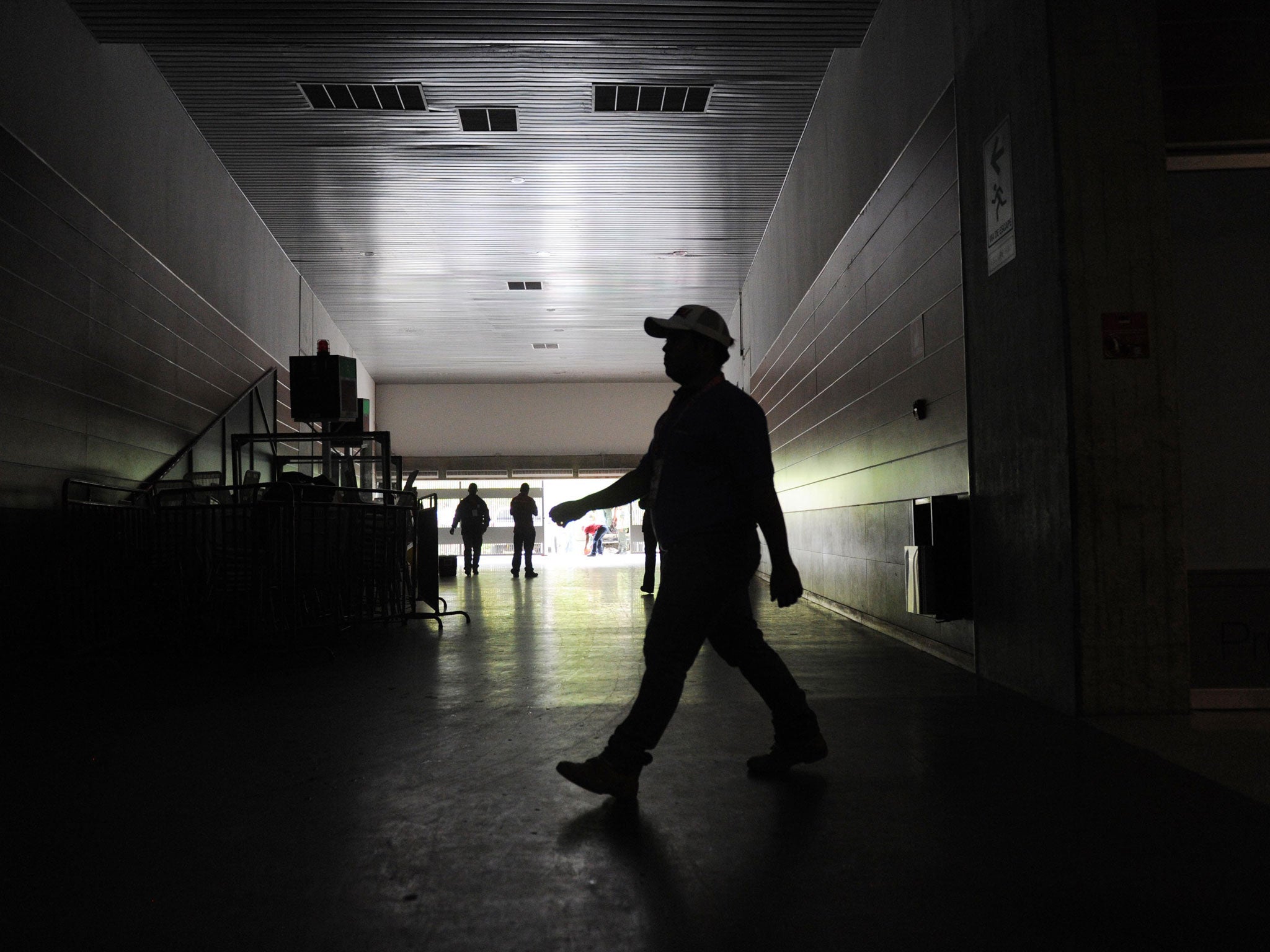Losing grip on power? Venezuelan President blames saboteurs for black-outs
Nicolas Maduro calls for the creation of a new security force to protect the national grid

The Venezuelan President has called for the creation of a new security unit to protect the country’s national grid after blaming right-wing saboteurs for a massive power cut that afflicted some 70 per cent of the country, including much of Caracas.
Outages are frequent across rural Venezuela, but the lights rarely go out in the capital. The sweeping power shortages represent a serious crisis for Nicolas Maduro’s government at a time when the country’s economy is under pressure.
At around midday on Tuesday, following a fault in one of the national grid’s main transmission lines, Caracas was plunged into chaos: cash machines stopped working; traffic lights went dark, causing pandemonium on the already unruly roads; and many people were left trapped underground in subway trains. With the city at a standstill, thousands of workers simply went home.
The blackout affected up to 17 of Venezuela’s 23 states for most of the afternoon, with power gradually restored after three hours. Though the lights were on in Caracas by nightfall, some more remote regions were still thought to be experiencing outages today, further feeding widespread dissatisfaction with Mr Maduro’s government.
The country’s Electrical Energy Minister, Jesse Chacon, appeared on state television to apologise for the cuts, saying they were caused by a short circuit, after a metal grille had fallen onto high-voltage transmission lines in the Bajo Caroni region, which produces almost two-thirds of Venezuela’s power.
Mr Maduro, who took power in March following the death of his mentor, Hugo Chavez, blamed opposition forces for the fault, suggesting his rivals had deliberately sabotaged the power lines.
“Everything seems to indicate that the extreme right has resumed its plan for an electrical strike against the country,” he wrote in a tweet, though he failed to disclose any details to support his claim.
In a subsequent television address, he described the blackout as “part of a low-level war”, and a “folly by twisted and desperate minds”. He said he had ordered the military to “protect the entire country”.
The leader of the opposition, Henrique Capriles, said that Mr Maduro’s claims were simply a conspiracy theory to distract the public’s attention from his government’s failures.
In 2010, Chavez declared a national “electricity emergency” to combat Venezuela’s increasingly common power shortages, and critics argue that the power cuts are the result of his government’s lack of investment in infrastructure.
Since Chavez first came to power 15 years ago, his socialist government has poured billions in revenues from the country’s oil industry into reducing inequality, with sufficient success to continue earning the votes of the Venezuelan poor. In April, Mr Maduro beat Mr Capriles to the presidency in a close and bitterly fought election.
In the months since he took office, The economic policies of Mr Maduro’s government have led not only to shortages in power, but also in water, basic foodstuffs and amenities including, infamously, toilet paper.
Subscribe to Independent Premium to bookmark this article
Want to bookmark your favourite articles and stories to read or reference later? Start your Independent Premium subscription today.

Join our commenting forum
Join thought-provoking conversations, follow other Independent readers and see their replies